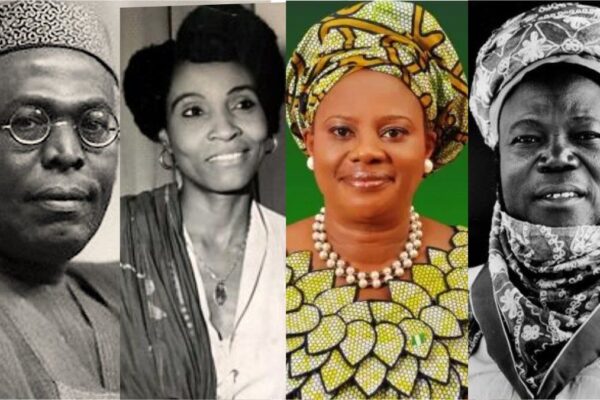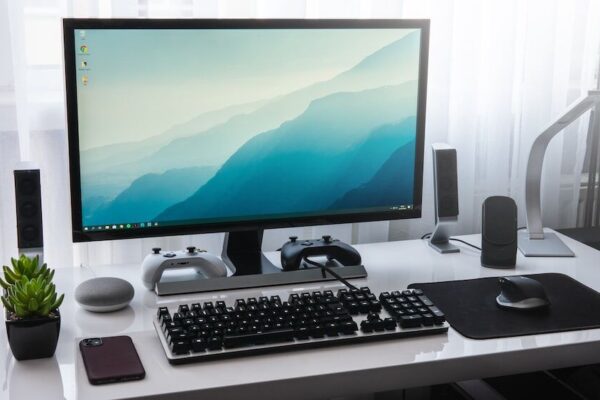You are in a queue at your polling unit on election day. Everyone is calm, and the entire process is going on well until when some unidentified persons suddenly pull up, brandishing all manner of weapons, chase away the election officials and voters and then cart the ballot box and papers away. Quite a familiar scenario, right?
The aforementioned situation is a recurrent phenomenon on election day in Nigeria. Electoral violence, however, is not limited to election day disruption as it also occurs throughout the electoral process cycle: the pre-election cycle and the post-election cycle. Election violence takes different forms, perpetuated by several individuals, groups, and even formal institutions of the state.
Regardless of who foments it, electoral violence significantly impacts all stakeholders, the electoral process, and democracy in general. So, what is electoral violence? Why does it happen? How does it impact Nigerians and their country’s nascent democracy?
Meaning of electoral violence

Electoral violence is politically-motivated violence that either state or non-state actors use to destabilise the electoral process, including but not limited to sabotaging and disrupting voting on election day. It involves any threat or real act of coercion, intimidation, or physical harm affecting the electoral process or elections itself.
Electoral violence is a potent tool used by the political class and their agents, and even the government of the day, to influence the outcome of elections, delay, derail polls, protest election results or suppress protests against election results. It is aimed at intimidating, harming, and blackmailing a political stakeholder before, during, and after elections.
ALSO READ: Nigeria election 2023: Aspirants, primaries, running mates, other information
A more comprehensive definition of this act is provided by Gabrielle Simon Bardall:
It is a subtype of “political violence is a means of controlling and/or oppressing an individual or group’s right to participation in political processes and institutions through the use of emotional, social or economic force, coercion or pressure, as well as physical and sexual harm. It may take place in public or in private, including in the family, the general community, online and via media, or be perpetrated or condoned by the state”.
The methods used by the political class to create electoral violence include: assassinations, attempted assassinations, confinement, battering, arson, looting, political thuggery, destruction, and property damage. It also involves psychological dimensions aimed at injuring or intimidating populations. This takes the form of threats to opposition candidates by other political camps and/or security agents or through phone calls and text messages and shadowing opposition candidates’ movements.
National and sub-national governments also instigate electoral violence by mainly using subtle techniques such as coercing citizens, particularly civil servants working in their establishments, to vote for a particular candidate or political party, detaining a popular candidate under flimsy grounds, not providing equal opportunities for political parties and candidates to campaign across the constituencies via rallies and disseminate their message through the media, the politicisation of security and electoral officials and the manipulation of election results to favour one party and the candidate over the other.
This destructive phenomenon occurs during all parts of the electoral cycle, namely:
- Pre-election period: Violent raids on voting registration centres to harass potential voters, forceful disruption of campaign rallies and obstruction of other campaign activities, harassment, kidnapping, and assassination of political candidates
- Election day proper: Attack on election officers conveying election materials to polling units, disruption of the voting process by thugs at polling centres, snatching of ballot papers and boxes at polling units and/or collation centres, harassment of election observes/monitors, kidnapping and/or assassination of political opponents
- Post-election period: Violent protests over election outcome/announcement, arson, looting, shooting
Electoral violence is, therefore, simply the deliberate use of power and force by the political class and the government of the day in charge of institutions of state to achieve their political goals of winning elections.
ALSO READ: Effects of vote-buying on elections in Nigeria
History of electoral violence in Nigeria
Although the elective principle was introduced in Nigeria in 1922, the origin of electoral violence in the country can be traced to the Action Group (AG) crisis of 1962. The AG was the dominant political party and governed the country’s then Western Region (now South-West region). The party held sway in the region from 1951 to 1962 when its leader and the former Premier of the now-defunct Western Region, the late Obafemi Awolowo, fell out with the late Samuel Ladoke Akintola, the Deputy Leader of the party who succeded Awolowo as Premier of the region.
The fallout resulted in the party splitting into factions, and Akintola eventually left the AG and formed a new regional party, the Nigerian National Democratic Party (NNDP). After a state of emergency was declared by the Federal Government – which tacitly supported Akintola – over the Western Region in May 1962 due to the chaos, the crisis spiralled into the federal elections of 1964 and the Western regional elections of 1965. The election results declared an overwhelming majority for Akintola and the NNDP. However, the AG insisted that the party had won the election and its acting leader, Dauda Adegbenro, should be declared Premier of the region. Akintola’s party was accused of rigging the election in its favour.
A crisis erupted in the region as the AG and its supporters protested the outcome of the result, with the protests turning violent. The protests escalated after the courts upheld the victory of Akintola and the NNDP. This crisis continued with blood spilling across the region, people losing their lives, and properties being destroyed. According to Human Rights Watch (HRW), more than 200 people were killed in the Western Region alone as a result of the crisis. This impacted the national level, with political instability affecting the Federal Government. It was subsequently one of the major reasons adduced by the military to justify the overthrow of the civilian government via the January 1966 coup d’etat.
Since the 1964/1965 elections, virtually all general elections in Nigeria have been characterised by violence. The 1983 elections were laced with violence, especially in South-West Nigeria, following allegations of rigging against the ruling National Party of Nigeria (NPN). The Unity Party of Nigeria (UPN), AG’S successor, alleged that the election results of Oyo and Ondo states, which were declared in favour of the NPN, had been falsified. The violence that ensued in parts of the South-West was unprecedented.
Despite being declared free and fair, there was an uproar when the Babangida regime annulled the 1993 presidential election. According to the Campaign for Democracy (CD), a civil society, headed by the now-late Beko Ransome-Kuti, an estimated 100 demonstrators and passers-by were killed by security agents struggling to contain the violent offshoot of the July protests.
Since the start of the Fourth Republic in 1999, all the elections conducted in the period under review have had electoral violence as a recurring decimal. The worst, so far, is the 2011 general election, in which 800 persons were estimated to have been killed by the post-election violence in about 12 states across northern Nigeria, according to HumAngle.
ALSO READ: 2023: How to obtain PVC, vote in upcoming election
Causes of electoral violence in Nigeria

Electoral violence continues to fester in Nigeria and across Africa due to the following factors:
Desperation by politicians (and sometimes, the state)
Politicians and political parties are desperate to get power and will use all available means, legal and illegal, to ensure that they are elected. They consider the amount expended on campaigns and insist they cannot afford to lose the elections. They also dream of the thought of having enormous power and wealth they can gain if they are elected into office.
So, whenever they perceive that they cannot win the election in an area fair and square, these politicians, political parties, and even state institutions, deploy their “nuclear option” by deploying political thugs to cause violence. These thugs engage, on behalf of their principals, in all manners of dishonourable acts such as snatching ballot boxes and disrupting the voting and collation process on election day, political assassinations, or obstruction of opposition candidates’ activities.
Manipulation of election
Whenever elections are manipulated, it means that the people’s will is not truly reflected. Elections can be manipulated through snatching the ballot box, false declaration of results by the presiding election officer, or the collation officer tampering of already declared election results. Electoral malpractices, the false declaration and/or tampering of results, are largely done by officers of the electoral management body, who allegedly work in tandem with the incumbent government administration and/or the ruling political party, which control the apparatus of the state.
If the defeated political parties and candidates and the electorate suspect that any of the above-mentioned scenarios occurred, they would be incensed, and their first reaction is to protest or revolt. The tendency of such a protest to get violent is quite high, as there is the possibility of the protesters overreacting, the protest being hijacked by fifth elements, or the security officers being overzealous while maintaining the peace and enforcing the law.
Large war chest for political actors to prosecute elections
Politicians and political parties are officially empowered to expend a copious amount of money on elections, and this fuel their ability to fund violence during the election season. For example, Section 88 of the recently assented 2022 Electoral Act in Nigeria jacked up the spending limit for presidential candidates to N5 billion, while N100 million and N70 million, respectively, are the new limits for senatorial and House of Representatives candidates. The maximum amount of election expenses for state House of Assembly and local government chairmanship candidates is N30 million. Councillors contesting for seats in local government areas are not to exceed the sum of N5 million for their campaigns.
Therefore, since elections are heavily monetised and with them empowered by a large amount of cash to spend, it is not difficult for political class members to dispense what may be described as “chicken change” to political thugs to foment violence on their behalf.
ALSO READ: 2023: Why there is uproar over Muslim-Muslim presidential ticket
Poverty
Poverty is the root cause of why individuals agree to be induced by political actors and act as their thugs. The National Bureau of Statistics (NBS) said in 2020 that 82.9 million Nigerians live on less than $1 a day, representing 40 per cent of the population. With such a high number of people lacking the financial resources and essentials for a minimum standard of living, it is not surprising when they agree to collect whatever amount they are offered to cause violence during the election period.
To such persons, they are not mortgaging their future, despite the risks and consequences associated with their actions. Instead, these people state that they are only looking for the means to survive. The political actors know this and continue to weaponise and perpetuate poverty, using it as a tool to claim political power for themselves.
Introduction of technology into elections
Introducing technology into the electoral process, particularly in Africa, has drastically reduced the chances of political actors rigging elections. The use of handheld electronic devices to read biometric voter identity cards, the tracking of election materials, and the electronic transmission of results have made manipulating election results harder for political actors.
Electoral violence is used to influence the outcome of elections because parties cannot win through fraud alone, as is the case recently in Nigeria, due to the technological innovations added to safeguard elections. Knowing that the traditional ways of rigging (planting people without proper means of identification to visit random polling units to vote and counting unaccounted ballot papers stuffed into ballot boxes and carried to the collation centres) are largely unfeasible, political actors have resorted to violence as a means of enchanting their chances to win and checkmating their opponents.
Lack of prosecution of previous offenders
Over the years, the political class has been able to mobilise people to act as their thugs and engage in various activities that are a flagrant violation of the law without any repercussions. While there have been arrests, there has not been a catalogue of successful prosecution of people who have committed electoral violence, especially the prominent political parties, their candidates, and their agents.
Part of the issues which has festered this development in Nigeria is the absence of an electoral offence commission. The Independent National Electoral Commission (INEC) has limited powers to prosecute electoral offenders. So, when politicians, political parties, and their underhand agents know that there is little or no chance of being caught, they are encouraged to continue with their illegal activities.
Another factor not to be overlooked and is gradually gaining momentum in Nigeria and Africa is the dissemination of fake news through either the traditional or online media.
ALSO READ: Tribal politics in Nigeria: Effects and solution
Effects of electoral violence in Nigeria

The effects of electoral violence in Nigeria are as follows:
Breakdown of law and order
The immediate impact of all forms of violence, including electoral violence, is the breakdown of law and order. Once violence affects during the election cycle, the affected country or region becomes disorderly, and if not careful, it results in the Hobbesian state of nature, which is anarchy. As a result of the anarchy, there is a massive deployment of the military, police officers, and other law enforcement officers, who, sometimes become overzealous in discharging their duties by subjecting the people to various threats, harassment, intimidation, extortion, torture, and rape. This escalates the violence level further. The aftermath of the 2007 general election in parts of South-West Nigeria and the 2011 general election in northern Nigeria attest to this situation.
This lawlessness leads to…
Loss of lives and property and/or permanent injury
This is perhaps the gravest of all the effects of electoral violence in Nigeria and across Africa. Violence in any form hurts, damages, or even kills people. This affects all stakeholders in the electoral process: candidates, politicians, election officials, security officials, and the entire citizens. Even the thugs hired by members of the political class are not spared as they can also get killed in the course of fighting or sustain a permanent injury. There have been numerous incidents of electoral violence across Nigeria since the return to democracy in 1999.
Aside from the loss of lives, various public and public properties are also destroyed. This destruction creates a nightmarish experience for citizens in utilising public facilities and equipment and decimates the livelihoods of millions of citizens in the affected areas where the violence occurred. Due to the destruction of properties, some people automatically become internally displaced persons (IDPs) as their homes no longer exist. In addition, resources that the state could have used to provide additional amenities will have to be used to either cater to homeless citizens by the violence or repair existing facilities.
Voter apathy
Voter apathy sets in if a political system is heavily characterised by electoral violence. Eligible voters are discouraged from registering to vote and vote on election day or even outrightly prevented from voting because they feel that their safety is at risk and insist that there is no point in participating in such an election.
The citizenry is disillusioned with the political process or politicians in their countries and/or regions if electoral violence festers, and more often than not, the citizens express their disgust by not participating in the electoral process, especially by not voting on election day. They eventually get disinterested in the activities of the government, governance, and the entire political process itself. This is because the citizens do not take ownership of their government. This is dangerous as it breeds dictators to govern most people.
ALSO READ: Top 10 Nigerian politicians’ nicknames
Election of unpopular government
A direct implication of electoral violence is the electorate’s election of unpopular leaders and government. Incompetent politicians and candidates hijack and/or sabotage the electoral process for their selfish gain. The violence before and during elections largely means that the electorate may not be able to vote for capable candidates and this, therefore, empowers unpopular politicians, who will get their mandate and govern at the expense of the majority. This, therefore, indicates that people who are not fit to govern may be elected.
As a result, those who get into positions of authority believe they have little or nobody to be answerable to. The leaders make unfavourable decisions and misuse resources from the people’s commonwealth, knowing that they will face little accountability.
Entrenchment of poverty
When politicians notice that some members of society are always susceptible to being used to perpetuate violence and their actions provide the desired results, they will hardly get to improve the people’s standard of living. Instead of implementing good policies and carrying out good actions to mitigate the challenges of the electorate, members of the political class elected through electoral violence will continue to constrict the enabling environment, making it more difficult for the people to succeed. They weaponise and entrench poverty the more so that some people will habitually depend on them for financial handouts and gifts every election cycle.
Withdrawal and paucity of credible individuals as potential candidates for elective positions
Electoral violence hampers effective political competition and participation, as some persons who are deemed credible and have good intentions to participate in politics may be taken aback by the level of barbarity and decide to abstain from the process.
Therefore, only politicians who can maintain coercive force become the main players in the political system.
Bastardisation of the electoral process and democracy

Whenever electoral violence becomes the order of the day for an election, it questions the credibility, legitimacy, and integrity of such a poll. It also casts doubt on the ability of the elected person to properly function in office as he or she did not test his or her popularity fairly, which is what election is basically about. Such a practice is antithetical to democracy, which encourages popular political participation.
ALSO READ: History of riots in Nigeria
Electoral violence also inhibits affected countries’ and regions’ electoral management bodies from successfully conducting free, fair, credible, and transparent elections. This leads to the deinstitutionalisation of the democratisation process.
How to stop electoral violence
- Adequate education and sensitisation of the electorate by the electoral umpire, political parties, politicians, and the media on the need not to engage in electoral violence
- Impartiality of the electoral umpire by providing equal opportunities to all candidates and political parties throughout the electoral process and cap it up by conducting free, fair, and credible elections
- Provision of adequate security at polling units and collation centres on election day
- Effective implementation, review, and strengthening of electoral laws, especially provisions that deal with electoral violence
- Arrest and prosecution of political thugs and their principals who engage in electoral violence
- Non-interference in the political and voting process by politicians
- Change of attitude by politicians by ending their do-or-die politics mantra
- Factual reportage of the political and voting process by the media, rather than stirring partisan sentiments that will trigger crises
- Strengthen and improve the economy by governments at all levels to empower their citizens and reduce the level of poverty
ALSO READ: Federal, state and local govt politician salaries in Nigeria








